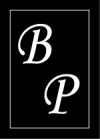 ON THE VERY CONTEMPORARY ART OF FLASH FICTION
ON THE VERY CONTEMPORARY ART OF FLASH FICTION
Lord Chesterfield called the novel “a kind of abbreviation of a Romance.” Ian McEwan described the more compact novella as “the beautiful daughter of a rambling, bloated, ill-shaven giant.” William Trevor considered the short story “essential art.” Writing a story, he said, is infinitely harder than writing a novel, “but it’s infinitely more worthwhile.” And now we have the even shorter story, a form that was validated, if it needed to be, when Lydia Davis, whose stories are sometimes a sentence long, was awarded the 2013 Man Booker International Prize. In their citation, the judges said of Davis’s works: “Just how to categorize them? They have been called stories but could equally be miniatures, anecdotes, essays, jokes, parables, fables, texts, aphorisms or even apothegms, prayers or simply observations.”
The short-short story is narrative (or it’s not) that is distilled and refined, concentrated, layered, coherent, textured, stimulating, and resonant, and it may prove to be the ideal form of fiction for the 21st century, an age of shrinking attention spans and busy and distracted lives, in which our mobile devices connect us to the world as they simultaneously divert us from it. And on the screens of our smartphones and our iPads and our laptops, we can fit an entire work of flash fiction. It’s short but not shallow; it’s a reduced form used to represent a larger, more complex story; it’s pithy and cogent, brief and pointed, and like the gist of a recollected conversation, it offers the essential truth, if not all the inessential facts.
The market for flash fiction is extensive and it’s growing. A Google search for flash fiction markets nets 719,000 hits in .55 seconds. Duotrope lists 4,700 publications looking for flash fiction, and a few of those outlets publish 365 stories a year. Your chances of finding a home for your short-short story are considerably better than they are for your novel. What better way to break into the world of publishing, to get your name out there, to earn the endorsement of editors, to introduce your beloved characters to an appreciable number of readers? If your dream is to write a novel, consider that flash fiction might be your first small step. I learned to write novels by writing short stories and learned to write short stories by writing very short stories before they had a snappy name.
While flash fiction may be quickly read, it is not often quickly written. Henry David Thoreau wrote, “Not that the story need be long, but it will take a long while to make it short.” To be brief takes time. But the obvious fact is that it does take less time to write a short-short story than it does the longer forms. It might take years to write a novel (it does for me), months to write a story, but only weeks, maybe days, if you’re lucky, to write a very short story. And an occasional morsel of sweet short-term gratification won’t make you sick. Promise! With the end so close in sight, you are emboldened, and you learn to finish. If you don’t finish, you can’t revise, and if you don’t revise, you won’t learn to write.
Read further @ LitHub






